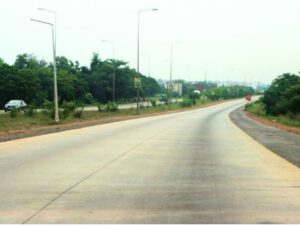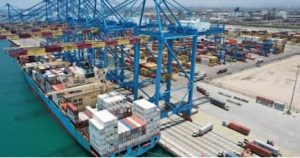Must we take the socialists serious when they say February 24, is the Day of Shame? These are the people who honour and hallow the name of Rawlings, the same person who canonized Kotoka and called him a hero for overthrowing Nkrumah. The one who said all Kwame Nkrumah did for Ghana was to give us a national flag and a national anthem. How can these same people honour both Nkrumah and Rawlings?”

Every February 24,theygo into competition to see who would condemn the first successful coup most, with the signature tune, “Ghana’s Day of Shame”.
Then we will be given a litany of Nkrumah’s achievements and be informed that no one had achieved what Kwame Nkrumah achieved for Ghana. It was all good and rosy during Nkrumah’s reign, and anyone who challenges his government, is condemned.
I will never say that Nkrumah achieved nothing for this country. I will be ungrateful and untruthful if I ever suggest that. But wait! Take a journalist around New York and show him the beautiful skyscrapers and infrastructures. The journalist will show you the underbridges and alley-ways where the homeless tramps live.
We always judge other leaders of Ghana, based on human rights records and standard of living, completely relegating developments made, by saying, “Is it development, we will eat?” So, let us for once place Nkrumah in this category and find out which position he would place when ranking our leaders.
Nkrumah was the only leader who started ruling this country with a credit balance and without inheriting any loan. He started with £240 million ($669.9 million) credit. However, all the major developments under his reign, like the Akosombo Dam, Tema Harbour, the Tema Motorway, were achieved with external loans. The Akosombo Dam, cost us $258 million, of which we contracted a loan, of $64.5 million to complete its construction. What happened to our initial $669.9 million?
Kwame Nkrumah spent lots of our money, funding anti-colonial movements in some other African countries, at Ghana’s expense. In 1958, he gifted the newly independent, Guinea, £10 million ($28 million) for deciding not to be part of Francophone Africa.
Nkrumahspent recklessly and reduced our credit balance to £500,000.00 by 1965, while we registered red balances from loans we acquired.

According to World Bank data for 1965, Ghana’s deficit on current account was $228 million, and public foreign debt was almost $700 million. Our annual inflation rate (consumer prices) was 26.4 % and annual GDP growth was 1.4 %. Ghana’s total debt at the time of Nkrumah’s overthrow in February 1966,was $1 billion.
We are reminded of Nkrumah’s achievements and always told he did more than any other. Records show otherwise.
Nkrumah constructed Akosombo dam; Acheampong and Kufuor also constructed Kpong and Bui Dams, respectively. Nkrumah constructed Kaneshie housing estates; Acheampong constructed Dansoman and Teshie-Nungua Estates. Nkrumah constructed Tema Motorway; Nana Addo constructed Pokuase, Tema, Obetsebi-Lamptey, Tamale and Flower Pot interchanges, and begun the Accra-Tema beach road project. Pokuase interchange is the largest in West Africa.
For anything that Nkrumah constructed, others after him improved upon that record. So, if we are told that no one did anything apart from Nkrumah, then how can we explain the expansion of our cities and communities?
Now after Nkrumah’s developments, what about his human rights records? There were draconian laws, which will never be accepted in this day and age. There were PDA, which empowered the president to put anyone in prison without court trial; False Report Bill, which put to jail without trial, anyone who made comments that were perceived to be against the reputation of the state and government and the Chief (Recognition) Bill, which mandated only the president to enstool or destool chiefs. Nkrumah established the Young Pioneer Movement, and enlisted children who were brainwashed that they reported on their parents and have them thrown to jail, should they say minor things like, “These days, times are hard!”
Ghanaians lived worse than they did during the colonial days.
Any person who made adverse statements were thrown into jail and this included some CPP members. A CPP minister, a staunch Catholic, Hon. P.K.K. Quaidoo, was dismissed from government, sacked from Parliament and imprisoned, without trial, when he questioned the immortalization of Nkrumah on the floor of Parliament on May 22, 1961.
Finance Minister Hon. K.A. Gbedemah, who managed a strong economy from 1954 to 1961, spoke against Nkrumah’s introduction of socialism and controlled economyand condemned the implementation of the Seven Year Development Plan, adding that Ghana would suffer economic challenges. He was removed from the Finance ministry to Health. Even there, he would still not keep his mouth shut.
The propaganda machinery was set in motion saying Gbedemah was planning to overthrow Nkrumah. He denied this by saying “I would be sorry to have to do it but country has had enough of Nkrumah’s arrogance, whims and madness.” He was dismissed in September 1961 and had to flee into exile.
The much touted Seven Year Development Plan, which Nkrumaists claim to this day could have turned this country into a First World nation, was implemented on October 1, 1963, but by 1965, the economy, as predicted by Gbedemah, was in serious crisis. Pervasive corruption exacerbated problems and Ghanaians lived as if in slavery.
Meanwhile, Nkrumah was the Law. What he said or desired was Law. He had powers to dismiss judges who passed judgments he did not like and he could order re-trials.
When, on December 11, 1963, the Chief Justice Sir ArkuKorsah announced a verdict of Not Guilty on the Kulungugu Bombing case, it came as a bombshell to Nkrumah. He swiftly over-reacted. Two days after the verdict, he dismissed the Chief Justice, and rushed a bill through the Assembly which gave him the power, in the national interest, to set aside any judgement in the country’s courts. This rapid demolition of the independence of the judiciary did more than anything else to convince the world that Nkrumah had embarked on a course leading to dictatorship.
Three Justices of the Supreme Court, Edward Akuffo Addo, Kofi Adumua Bossman and Robert Samuel Blay, were dismissed on March 2, 1964. Exactly two weeks later,a High Court, judge, Justice Henry K. Prempeh, son of Asantehene Otumfuo Agyeman Prempeh I, was dismissed.
A proposal was made at the CPP Conference at Kumasi in 1962, just before Kulungugu, that Ghana should become a one-party state. The referendum on the one-party state was held in January 1964. The CPP claimed a 99 per cent vote in favour, but reports showed that the votes were shamelessly rigged. In some areas the ‘No’ votes were simply emptied into the ‘Yes’ boxes. In others the ‘No’ boxes were sealed to prevent any votes going in, or party stalwarts threatened anyone voting ‘No’.
In the whole of Ashanti, the NLM stronghold, not a single ‘No’ vote was recorded. These figures convinced no-one, but they showed how more and more power was being concentrated in the hands of Nkrumah, and how completely the opposition was being eliminated.
There was an atmosphere of terror in Ghana. Even students who applied for visas to visit Britain were told that if they spoke one word of criticism while in abroad, they would go straight to Nsawam prison when they returned to Ghana.
On the issue of corruption, Nkrumah did little to punish his cabinet minister, Krobo Eduseiand make him to account for illegal funds used in purchasing a golden bed worth, $8,400.00 and acquiring other properties home and abroad worth over $1.4 million while he was on an annual salary of $13,550.00. Nkrumah dismissed him from the position of cabinet minister of Transport and Communication, on April 18, 1962only to re-instateback to cabinet as Minister of Agriculture on September 3, 1962.
Nkrumah was touted as never being corrupt, but some historians have facts to prove that he was. In Kwame Nkrumah: The Conakry Days by Tierno Siradiou Bah, it was speculated that Sekou Toure refunded the £10 million, the state’s money, to Nkrumah and he also had lots dollars and pounds sterling, sent to him from Ghana in diplomatic bags. Whose money was this, if not Nkrumah’s. And if he took the state’s £10 million for himself, then what was he?
Moreso, in the Krobo Edusei’s case, Kwame Nkrumah clearly protected a corrupt person and so he can be said to be a corrupt leader.
Ghanaianshad freedom from colonial rule on March 6, 1957, but unfortunately, we got into the worse kind of servitude where our rights and liberties were taken away under the banner of Freedom and Justice.
February 24, should be marked as our Second Independence but if Ghanaians think it is a day of shame, then in all honesty, we should bring back, the PDA, False Report Bill, Chief (Recognition) Bill, a One-Party State and a president who will rule for life. The president should be the Law. Everything he says and desires must be granted without question. Dictatorship must be legalised with the president having full control of every aspect of life, even including the domestic family.
Today, Ghanaians condemn the Executive when it is perceived to be influencing the decisions of the courts. In the First Republic, that was legal. If we feel justifiedin condemning February 24, then we must amend our 1992 Constitution and bring back the First Republican laws.
Parliament, which must be the thumb of the President must take over the Judiciary.
In truth and in conclusion, Nkrumah ranks lower than he is being perceived. Thank You!
Hon. Daniel Dugan









